Set on a remote island off the west coast of Ireland, THE BANSHEES OF INISHERIN follows lifelong friends Pádraic (Colin Farrell) and Colm (Brendan Gleeson), who find themselves at an impasse when Colm unexpectedly puts an end to their friendship.
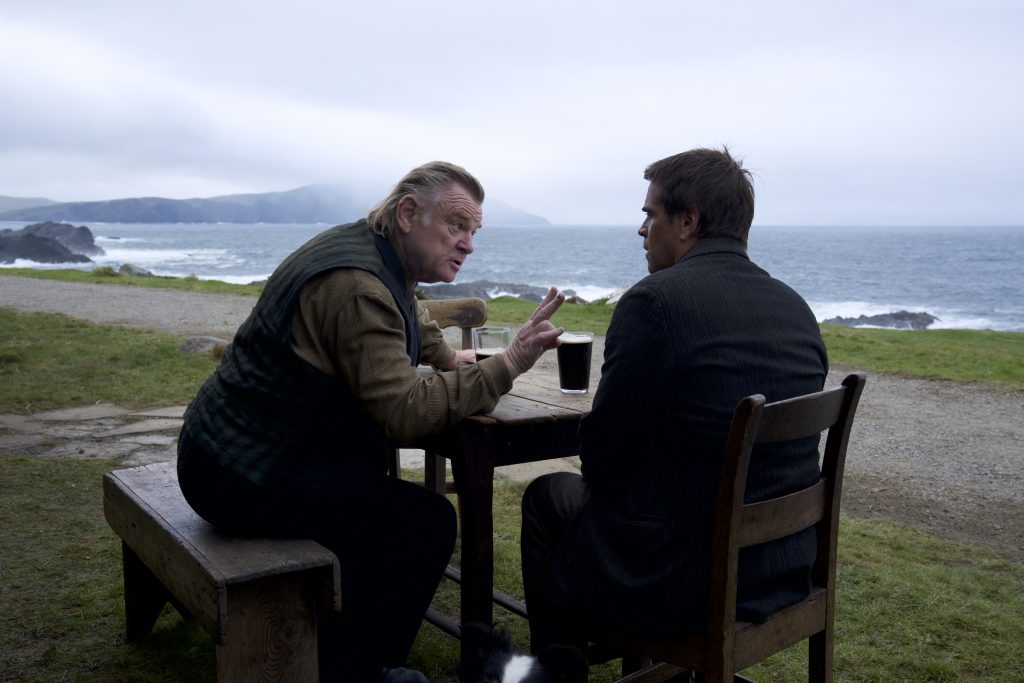
A stunned Pádraic, aided by his sister Siobhán (Kerry Condon) and troubled young islander Dominic (Barry Keoghan), endeavours to repair the relationship, refusing to take no for an answer. But Pádraic’s repeated efforts only strengthen his former friend’s resolve and when Colm delivers a desperate ultimatum, events swiftly escalate, with shocking consequences.
FUNNY, SAD, DARK AND FULL OF HUMANITY
In late 2019, producer Graham Broadbent was travelling in Argentina when he received an email from Martin McDonagh, the writer-director with whom he had collaborated on three motion pictures at that point – In Bruges (2008), Seven Psychopaths (2012), and Three Billboards Outside Ebbing, Missouri (2017). “Have a read of this,” McDonagh wrote in his email.
On a flight from Buenos Aires to Patagonia, Broadbent was plunged into the story of THE BANSHEES OF INISHERIN. The world that McDonagh created – a fictional island off the west coast of Ireland where two friends become estranged, leading to disastrous, anarchic consequences. It had all of the writer-director’s trademarks: it was funny, sad, dark, and full of humanity –distinctly McDonagh.
“The Banshees of Inisherin is the story of an island, the small group of people on that island, and two friends who early on in the film are forced by the decision of one friend to go their separate ways,” says actor Colin Farrell (The Lobster, Minority Report), who plays Pádraic in the film. “The other friend finds that particularly hard to deal with.”
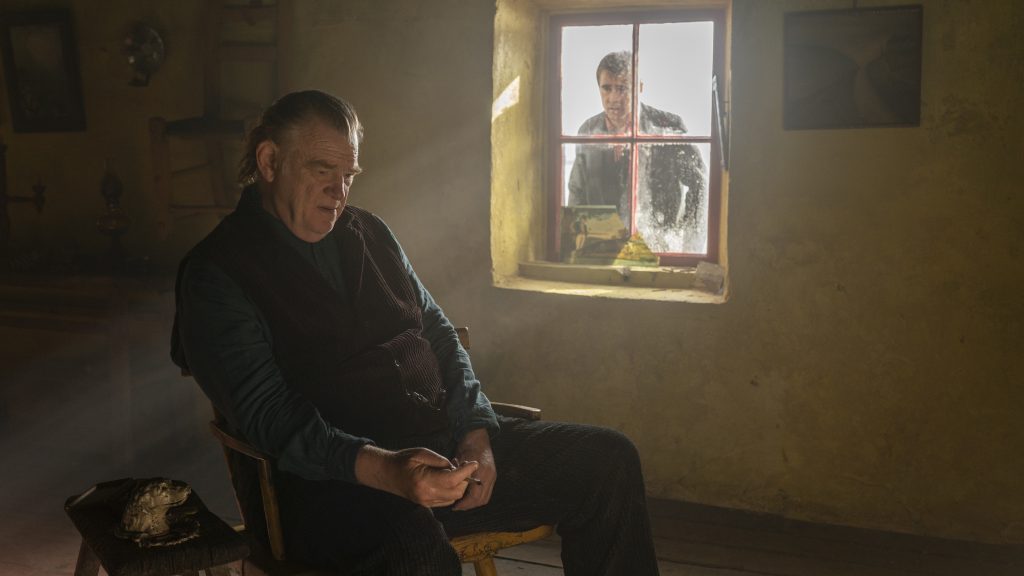
The story opens with walking happily around the island of Inisherin where he lives with his sister, Siobhán. is a sweet, mild-mannered, happy-go-lucky guy: “A lot like the real Colin Farrell,” remarks McDonagh.
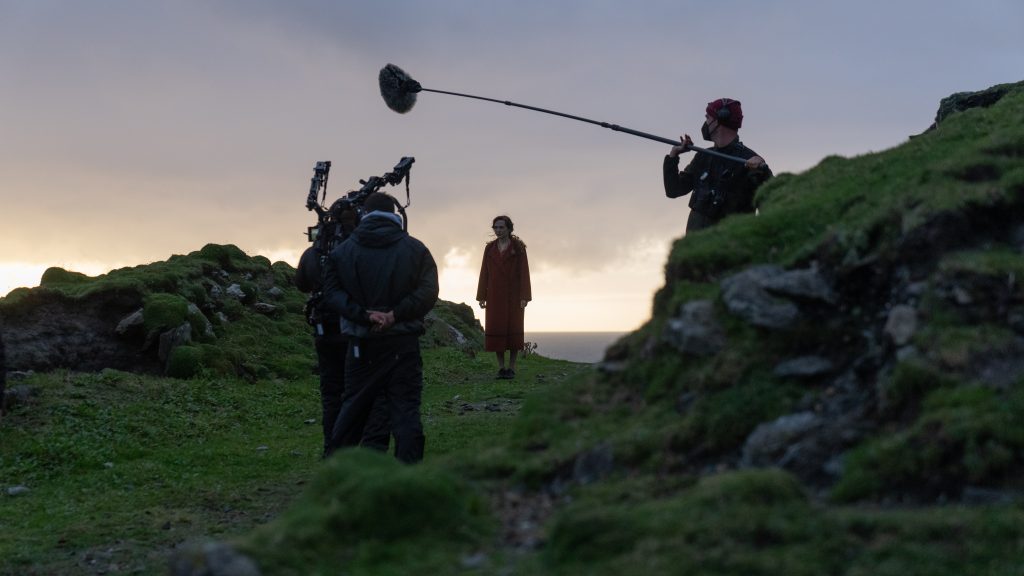
Every day, Pádraic and Colm meet at 2pm to go for a drink in the only pub on the island. It’s a daily routine. On this particular day, however, everything changes. Colm, played by Brendan Gleeson (Harry Potter and the Goblet of Fire, Braveheart, Gangs of New York) ignores Pádraic when he calls.
“Colm starts acting very strangely and starts avoiding Pádraic,” says Gleeson. “Colm doesn’t answer the door, which is how we start off the journey. That’s how it begins – with the shutting of a door against a good friend… for no apparent reason.”
Pádraic is initially surprised, then shocked, and eventually heartbroken. He’s also confused, since Colm has given no particular reason for the breakup. These two men have been friends for, we presume, their whole lives.
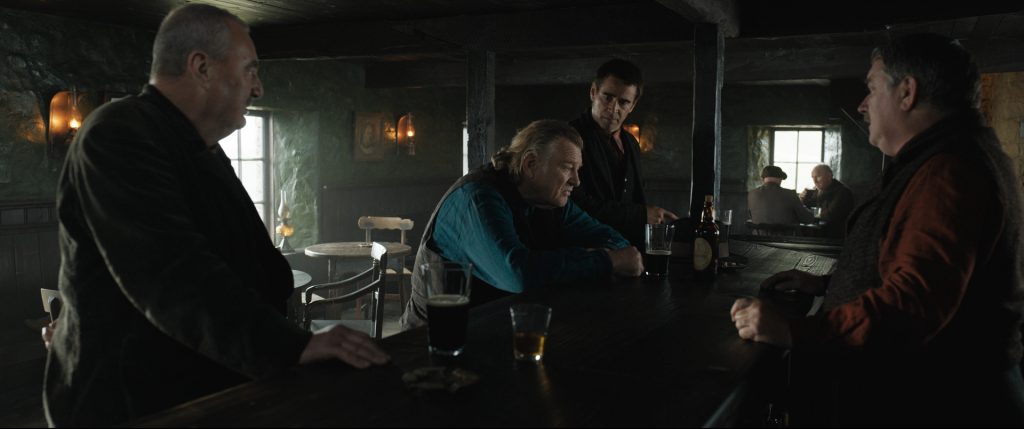
Why did Colm torpedo his friendship with Pádraic, was it something that Pádraic said, or did? Is Colm depressed? Should he respect Colm’s wishes and back off? Or should he try to change Colm’s mind or change himself? Within the first six minutes of the movie, the plot is in place.
“Pádraic can’t understand why Colm doesn’t want to be friends with him anymore and won’t accept it. It’s similar to the feelings you feel when you’ve been dumped in a relationship. You think, ‘So did you ever like me, or was I imagining that we were in love?’” says McDonagh.
“It’s interesting to see who the audience identifies with. Can they understand the tough line that Colm, the breaker-upper, has taken, or do they identify with the nice person who is broken hearted?”
Martin McDonagh
But Colm has his reasons. “He doesn’t want to waste his time anymore,” adds McDonagh. “He wants to devote himself to artistic enterprises: music or thought. Pádraic is the fallout from that decision. Until this point things have been easy going. But Colm is older than Pádraic by 15 or 20 years. Colm identifies that time is precious and he sees Pádraic as a waste of time.”
Kerry Condon describes the characterisation as a “smart way of playing with those feelings that everyone has in terms of a loving couple, heartbreak and rejection, but doing it with friends so there is a comedy element to it.”
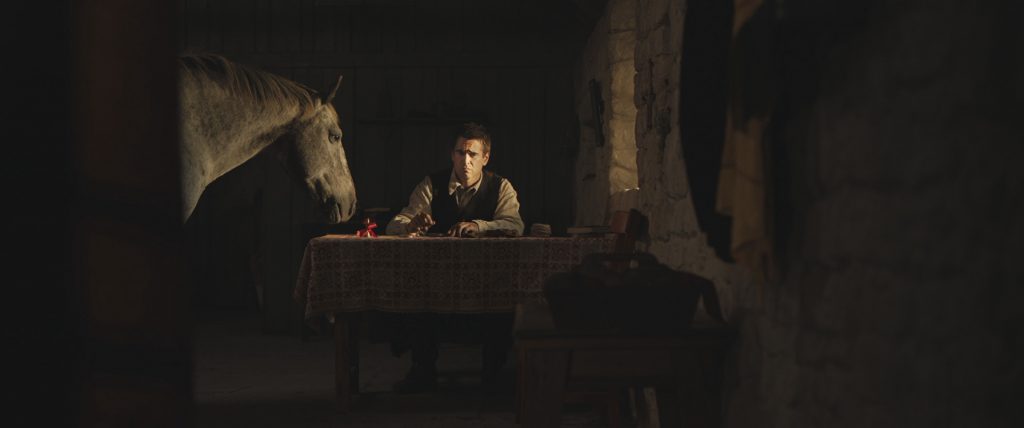
“Colm decides to embrace art and creativity as the most important thing in life and it leads to hellish consequences,” says Gleeson. “Pádraic chooses to be nice and he ends up with hellish consequences as well. The Irish Civil War was a tragedy – that’s the context here. Through examining it and trying to understand how things can get dragged out of shape, maybe we can face it down and not take that path. I hope the film will remind people that making nasty or harmful decisions has a lasting effect.”
“Do you devote yourself totally to life as an artist,” McDonagh continues, “and disregard friends or lovers or family? Is work the most important thing? Does it matter who gets hurt in the process? It’s a debate that isn’t answered by me or the film. I don’t think that you have to be a self- flagellating or dark or hateful person to do any kind of art, even dark art. But I definitely think the film explores that interesting conundrum.”
THE ULTIMATUM
As Pádraic continues to prod Colm for a response, the situation escalates. Explains McDonagh, “Colm comes to a place where unless he does something very drastic, he is not going to be left alone. He threatens to cut his fingers off unless Pádraic leaves him alone and allows him time to create,” adds Gleeson. “It’s a bit like a nuclear deterrent. He’s figuring, ‘If I threaten to do this it won’t happen’. Symbolically, he’s threatening to destroy his own gift of musicianship. Colm sees it as a badge of commitment.”
“It’s worth pointing out,” says Broadbent (using an unfortunate turn of phrase given the matter at hand), “that Colm is a fiddle player and his hand is important in his creative endeavours.”
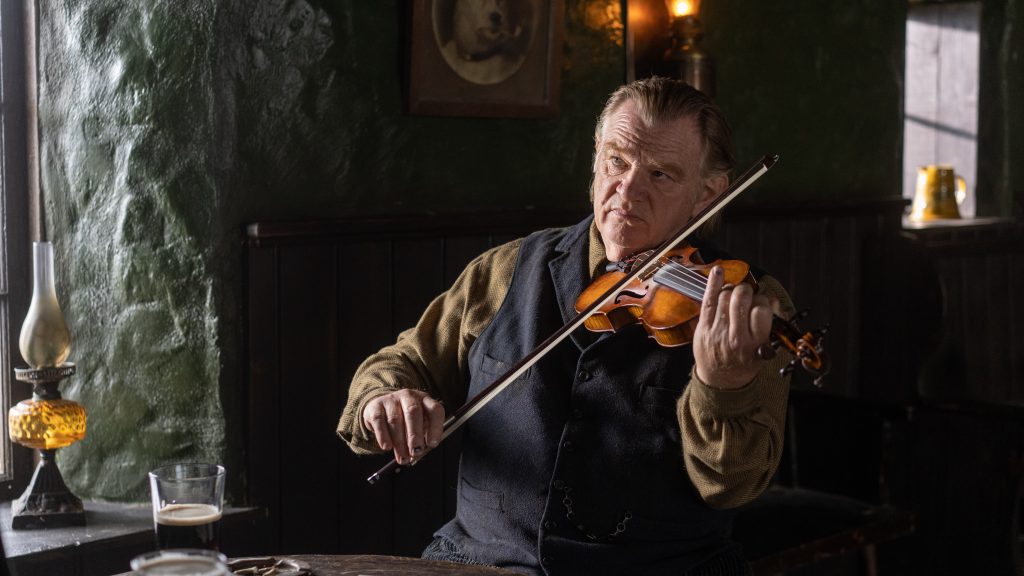
Then the islanders become involved. There is Peadar Kearney, played by Gary Lydon (Brooklyn, Calvary, The Guard), the local cop whose dislike of Pádraic and his sister intensifies after his separation from Colm.
Dominic Kearney, the policeman’s son, played by Barry Keoghan (Dunkirk, The Killing of a Sacred Deer, Eternals) “is another person who is affected by this schism between the two men,” according to McDonagh.
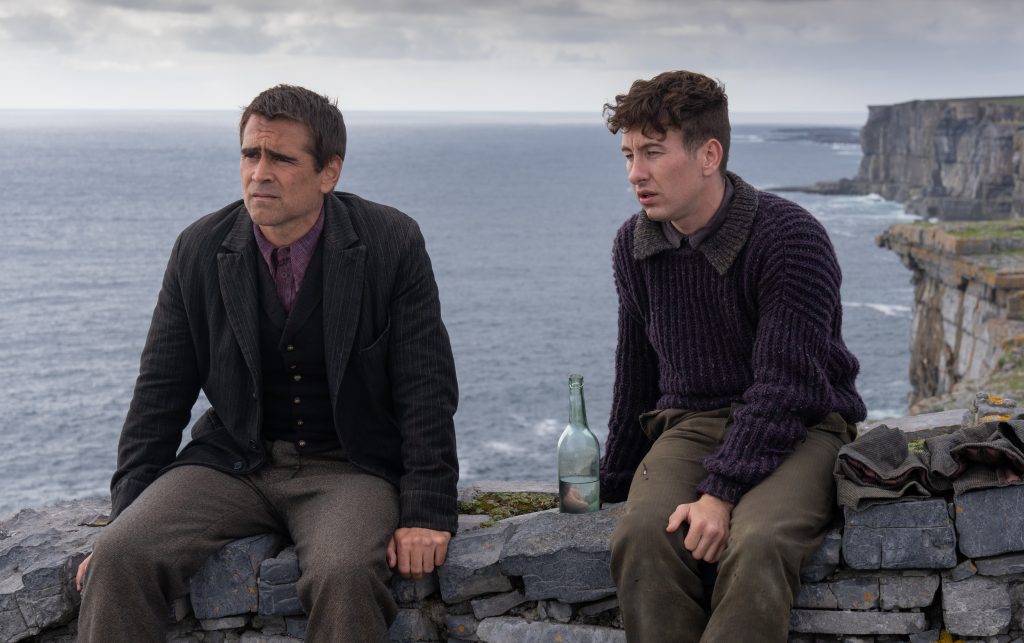
After a while, even the pub and its publican Jonjo, played by Pat Shortt (Frank of Ireland, The Guard, Garage) no longer feels like a safe haven for Pádraic.
“It’s a multi-character piece and there are many strands that go through the story,” says Farrell. “It’s not about any place that exists in particular. It’s Martin’s imagination working off certain tropes. But that’s the story: two friends who are no longer friends and the consequences and how those consequences reach out into the community. There’s discord and madness, loss and suffering, and some laughs along the way.”
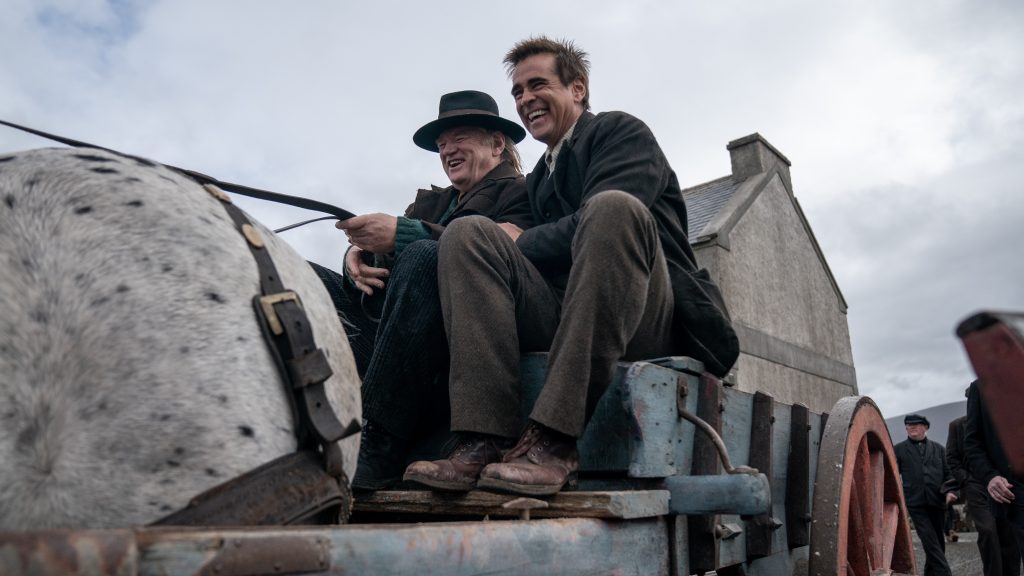
Colm’s artistic dilemma is reflected in Siobhán, Pádraic’s sister, whose life is consumed by reading, cooking dinners, and loneliness. Colm, perhaps, represents a struggle that Siobhán may find herself in within a few years.
“I think maybe Colm should have left the island a long time ago,” remarks Farrell. “I don’t know if he’s got too much wanderlust, or he’s just bored by the seeming monotony of sameness every day or whatever it is.”
Farrell believes all the characters in the film have their own struggles, sadness, and secrets: “All the characters are bananas. They’re mad in their own unique ways; archetypes brought together to create a certain amount of chaos – but not chaos for the sake of it, and not just dark moments or themes to titillate and shock.”
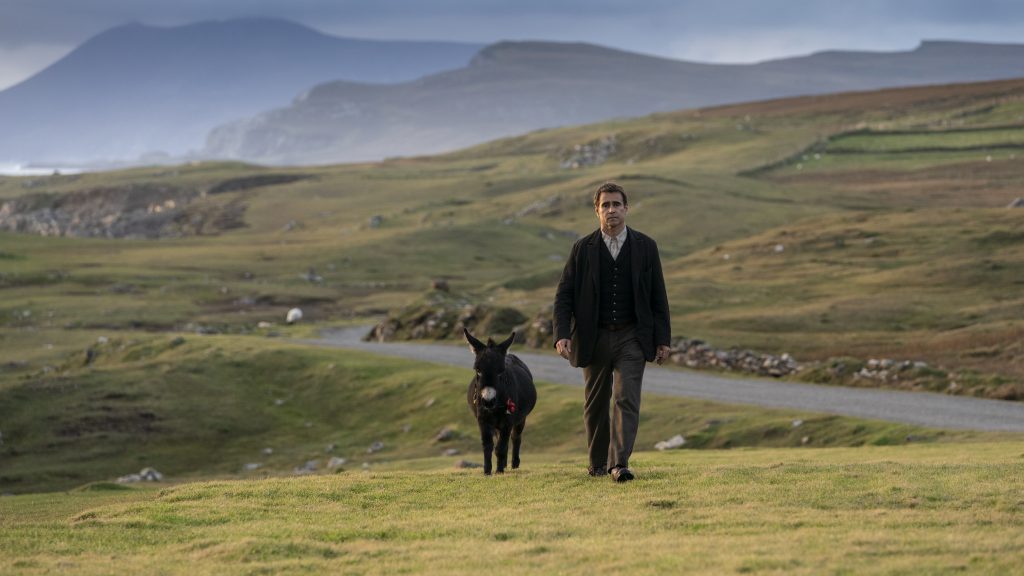
“I wanted the supporting characters to have their own singular lives,” says McDonagh. “Every person in life is the lead actor in their own film so you should treat all of the supporting characters that way. Because there’s this little war between these two guys you needed a sense of how the community reacts and how they deal with it and which side they need to pick.”
Ultimately, life on the island of Inisherin appears hellish according to Gleeson. “There’s unquestioned beauty around us. But it has become inward looking. There’s something rotten in the community.”
